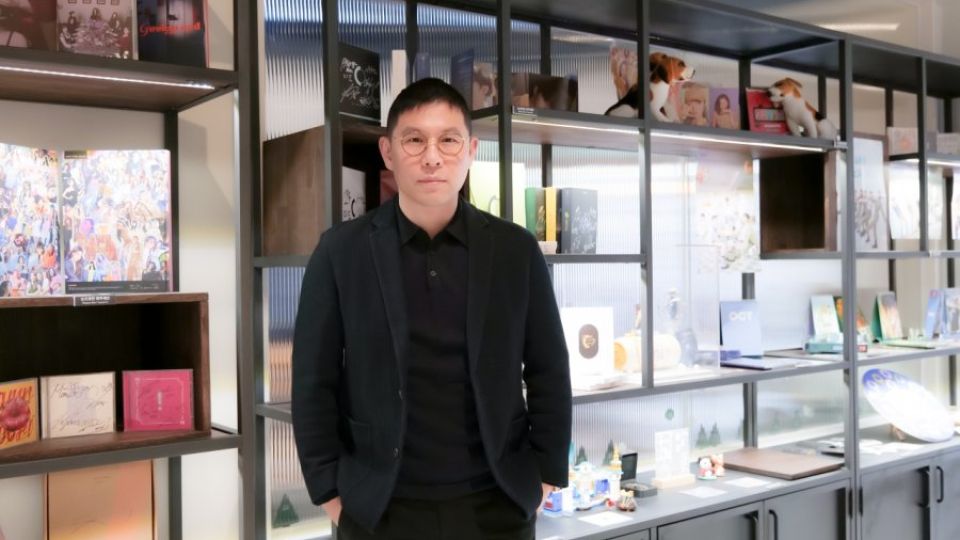December 20, 2022
SEOUL – “Million-seller” had been a title not many in the K-pop industry could achieve, but it has become undeniably more commonplace compared to a few years ago. K-pop, once a minor genre in the global music market, has grown at an ever-faster pace to form a whole industry unto itself.
Success inside the industry is now not just about the fame and fandom of a single K-pop act. It’s the whole system of personnel working together to place and keep that artist — the “brand” — in the limelight.
System for spotlight
Kim Jin-woo, the CEO of multilabel company RBW, said the key challenge for the industry now is establishing a company with concrete fundamentals that can compete in the global market.
“The key to success is the quality of content, and the main factor deciding the quality is how much the company can invest. If we’d made the early Mamamoo music videos with a 50 million won ($38,400) budget, now we have to spend at least 10 times that to compete against other big-name groups,” Kim said.
Such enhanced quality comes from the raised global awareness and presence of K-pop groups over the last three years or so. According to Kim, while K-pop’s global reach has made steady progress over the past decade, the growth during the pandemic was unprecedented.
“K-pop companies are now making content to compete in the global market, like Hollywood for example. It has to be able to stand out in such an expanded market. The marginal cost in producing quality content has increased immensely,” the entrepreneur said.
Such a paradigm shift has allowed large companies with deeper pockets to come out on top, with more and more smaller labels either dying out or being absorbed by those powerhouses.
Kim urged that it is essential for small labels to cultivate an organized system, not only for those firms to survive, but for the whole K-pop industry to go in the right direction.
“Producing a K-pop singer is like operating a boat. It’s the artist who stands up front, but there are people who row the boat, raise the anchor, spread the sails and turn the wheel. All crew members have to work together like one in order for the artist and the company to succeed,” the label chief said.
Rather than chasing short-lived success, Kim has spent 12 years compiling knowledge and building the system upon which companies, and their members, could prosper in the long term.
RBW, short for Rainbowbridge World, was co-founded by Kim Jin-woo and his partner Kim Do-hoon, also the chief producer, in 2010. Kicking off with a budget of 100 million won ($76,600) in hand, the two young CEOs could not make their own music from the start. The early years were devoted to performing the roles they could inside the entertainment industry, making music for other musicians, taking up agent roles, marketing and networking.
“We were able to compile experiences and go through trial-and-error because we worked for others. We continued to study and research how to build a sustainable system in the meantime, learning from not just our own but others’ experiences,” Kim said.
Now, RBW has grown into a profit-making production with over 4,000 intellectual properties related to music under its belt. In November 2021, RBW officially listed itself on the nation’s secondary, tech-heavy market Kosdaq.

Mamamoo (RBW)
Entertainment, not entertaining
Kim has been sharing his insight as an entertainment entrepreneur through various channels since 2016, including at the entertainment business department in Myongji University, which he established and teaches at, and a government-funded training course.
In November, he published the book “25 Business Secrets for a K-pop Production” to spread his initiative to the wider general public. Through his book, the CEO not only aimed to give insight into how people work inside the industry, but also share the reality that is often overlooked from the outside.
Kim said the overbearing spotlight on K-pop artists is a “social problem” and stressed there is much more than what people see on the stage.
“Our society recommends becoming a K-pop artist. There are over a dozen audition programs (on TV) flooding out every year, but this industry really doesn’t need that many stars. The industry might be prospering, but behind this bright side lies the truth that more people are failing to achieve their dream as an artist and are wasting their youth,” Kim said. “This has become a serious social problem.”
While a label launches just one to two new groups a year, several dozen teenagers endure grinding months to years in training. A handful of top-tier trainees debut, but even among them, only a lucky few can achieve stellar success. Kim said those who do not make it to the spotlight have the potential to contribute to the industry behind the stage.
“They know what it takes to become an artist, who works with the artists and how to communicate inside the industry, and rather than starting from scratch for another job, they could make use of the precious asset here,” said Kim, who explained he himself also once pursued a career as an artist.
Such experience is also valuable as it is not easy to see what it really takes to run a K-pop business, which is the reason Kim published his book. The CEO hoped his book could become like a beginner’s guide for those wanting to work in the entertainment industry.
“Right now, there are too many people who jump into entertainment to ‘entertain.’ But it’s not all about entertaining. There’s work to be done here, just as with any other business,” he said.
According to Kim, RBW is exporting such cultivation system overseas through business partnerships as well.
“If the first-generation K-pop was about performing abroad, the second generation was the foreign labels sending their artists to South Korea for training. Now, we’re training not the artists, but the producers and staff members who create those artists,” he said.
Kim’s emphasis on building a well-organized company with well-educated people is based on his long-term vision and deeply rooted passion for K-pop. RBW’s vision is to not just prosper alone, but to nurture a healthy ecosystem upon which new companies can prosper and keep the industry growing.
Under Kim’s vision, RBW has been taking the incubator role step by step, acquiring smaller aspiring labels under its roof and giving them full independence in operations, yet supporting them financially and systematically. Following its market listing last year, the company has conducted mergers and acquisitions involving DSP Media, WM Entertainment and, most recently, Goodfellas Entertainment.
“I believe there are younger minds who could strive higher than me. We’ll continue to make good artists and content of our own, but we’d like to go beyond that. Whether it be through investment or acquisition, we’d like to find the best strategy for startup companies and help them accelerate, as with the case of WM and DSP,” Kim said.


